- +44 7949 393386
- [email protected]
- Coventry University, CV1 5FB
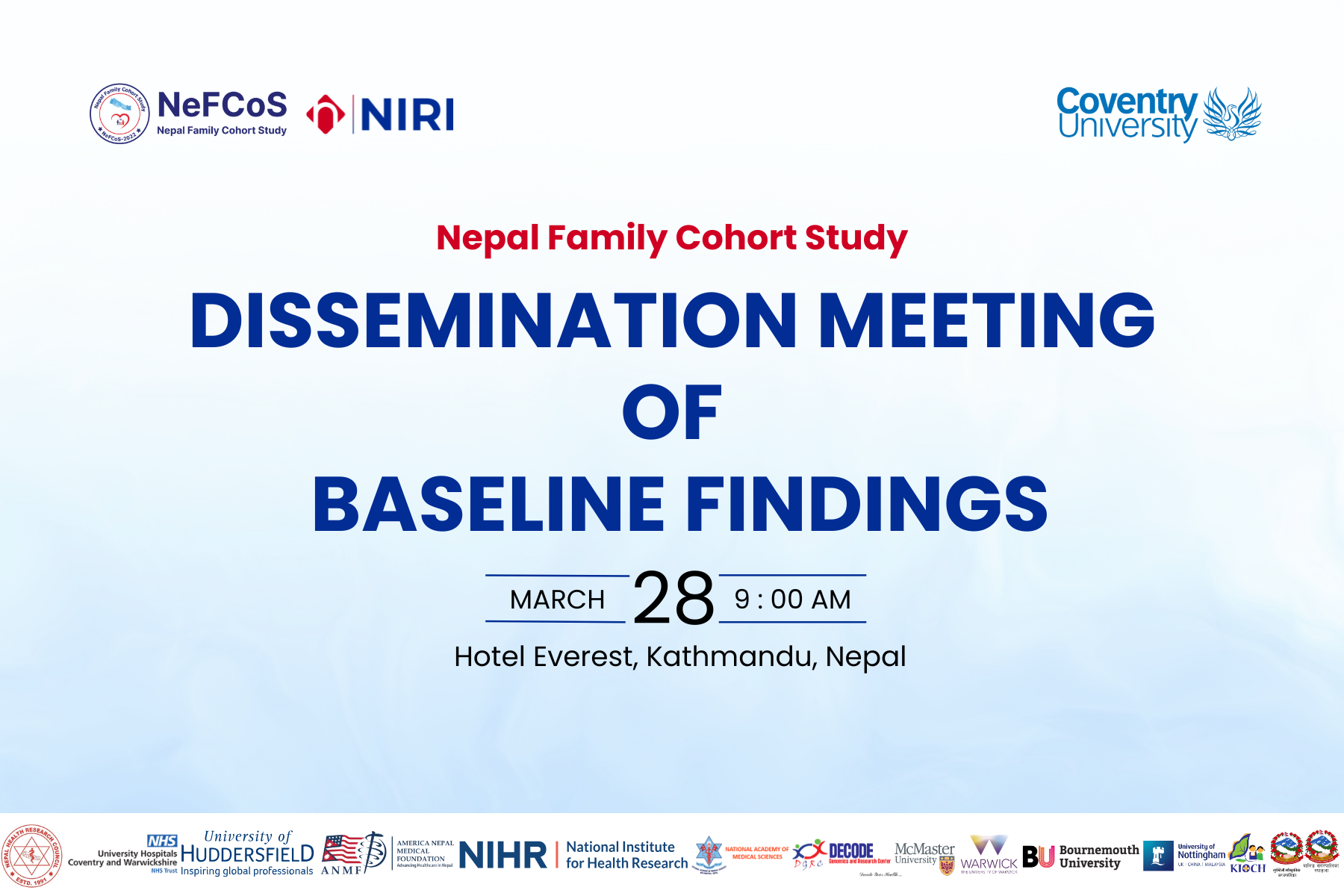
Nepal is facing a rising burden of respiratory and non-communicable diseases (NCDs), especially among vulnerable groups. Addressing this, the Nepal Family Cohort Study (NeFCoS)—one of South Asia’s largest community-based longitudinal studies—was launched between 2022 and 2024. It enrolled 16,826 participants, including children and their parents, to explore the life-course determinants of lung and overall health using comprehensive methods like environmental monitoring, genomic profiling, and biological sampling.
To share insights from the baseline study, NeFCoS has successfully conducted a high-level dissemination event, held on March 28, 2025, in Kathmandu, bringing together over 150 stakeholders from government, research institutions, development partners, and civil society. Key dignitaries included His Excellency Mr. Prithvi Subba Gurung, Spokesperson of the Government of Nepal and Honourable Minister for the Ministry of Communication and Information Technology, senior officials, and health leaders, including the Vice-Chancellor of Madan Bhandari Academy of Health Sciences, the Executive Director of the Medical Education Commission, the Executive Chief of the Nepal Health Research Council. The program was chaired by Prof. Dr. Bhagawan Koirala, the Chairperson of the Kathmandu Institute of Child Health (KICOH).The event emphasized translating research into impactful public health policies and showcased Nepal’s commitment to leveraging scientific evidence to improve population health
The NeFCoS dissemination event began with Dr. Suman Pant, investigator for the study, welcoming participants and highlighting NeFCoS as one of South Asia’s largest longitudinal health initiatives. He emphasized the study’s importance in shaping public health policy and advancing scientific understanding of disease across generations.
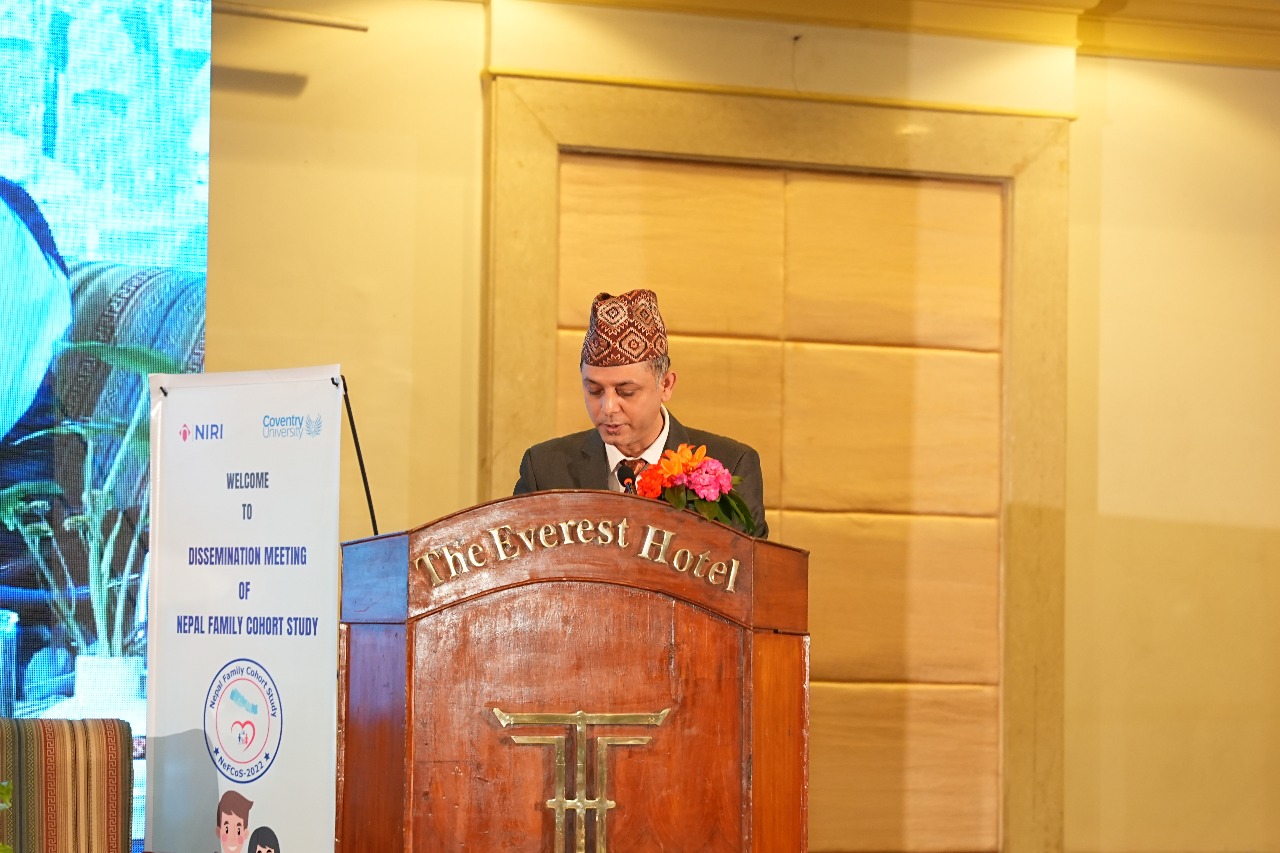
Prof. (Associate) Dr. Ashesh Dhungana, Dean of NAMS and National Principal Investigator of NeFCoS, delivered the keynote welcome. He emphasized Nepal’s urgent need for robust, population-based research to address both communicable and non-communicable diseases. He outlined how NeFCoS draws inspiration from international cohort models like the Framingham Heart Study, PURE, and ALSPAC, while employing advanced techniques in environmental exposure assessment, genotyping, and biological sampling. Prof. Dhungana also highlighted the need to connect research, policy, and practice to create equitable and community-driven public health solutions, and expressed gratitude to the study participants, collaborators, and funders.
Prof. Rosie Kneafsey, representing Coventry University, highlighted the vital institutional partnerships supporting NeFCoS. She spoke of the long-standing collaboration between Coventry University and NAMS, expressing enthusiasm for strengthening these ties under the current Memorandum of Understanding (MoU). Prof. Kneafsey emphasized the critical role of global academic partnerships in generating evidence to drive transformative public health outcomes in low- and middle-income countries like Nepal.
Prof. (Assoc.) Dr. Om P. Kurmi, International Principal Investigator of NeFCoS, opened the core scientific session. He shared baseline findings from over 16,800 participants, covering lung health, cardiovascular markers, lifestyle, environmental exposures, and genetic risks. Prof. Kurmi highlighted NeFCoS’s long-term vision as a 20-year cohort aimed at generating evidence to guide respiratory health strategies globally.
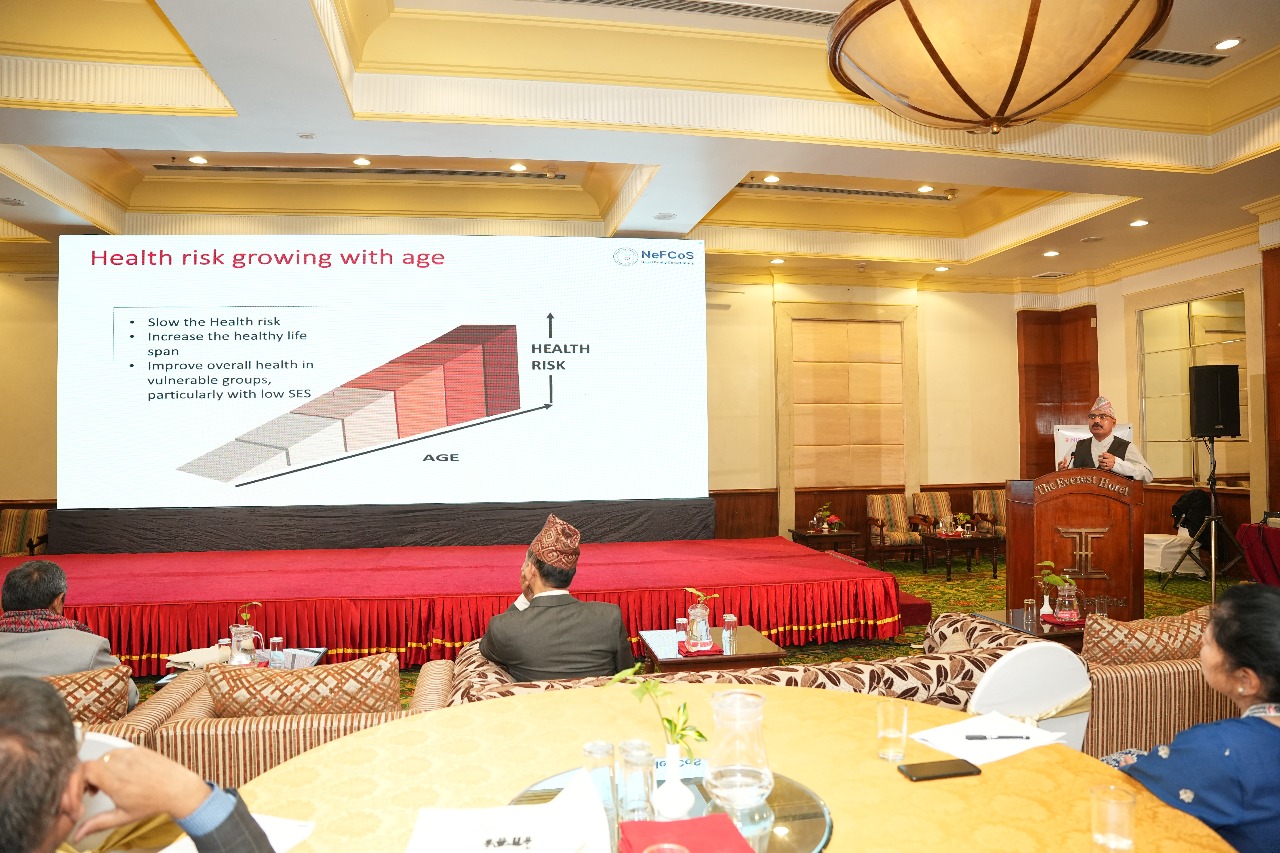
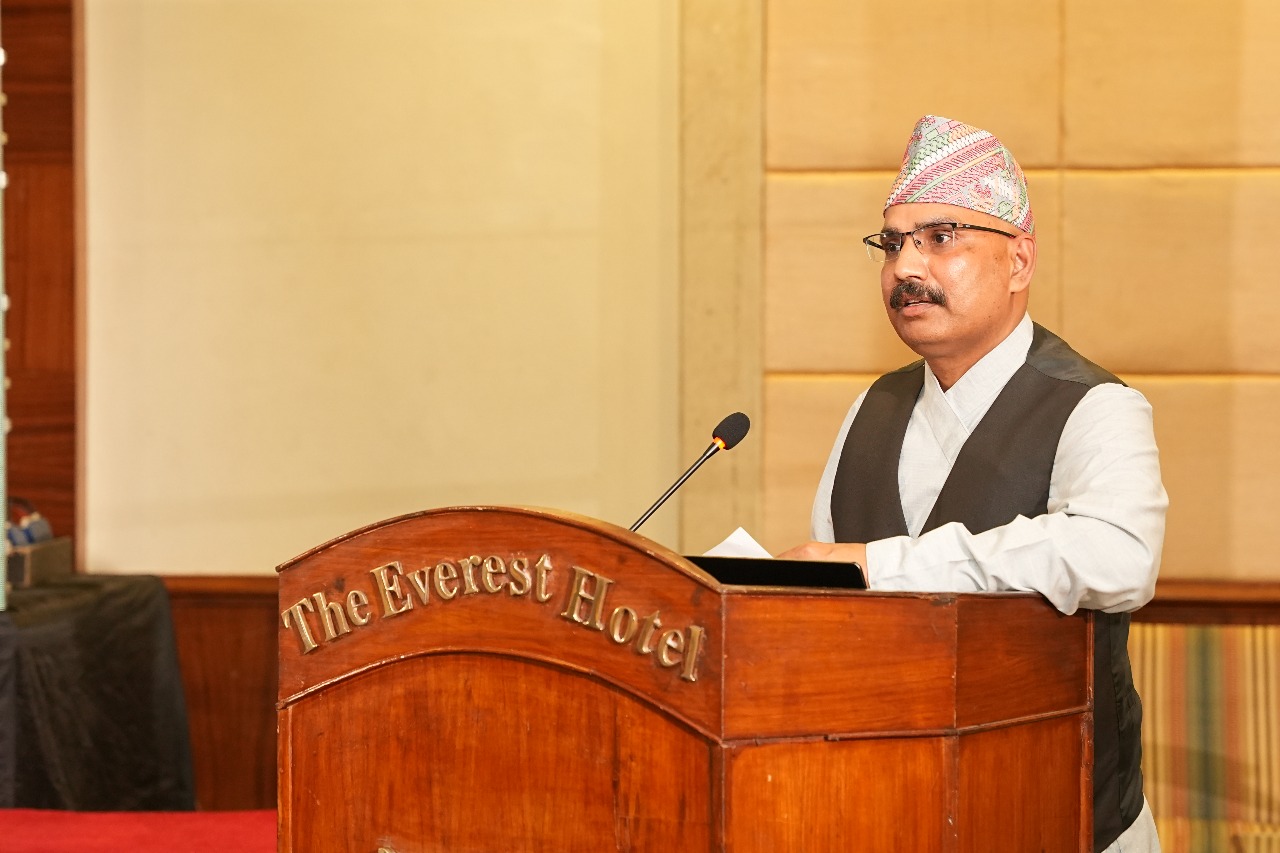
Other speakers included Prof. Dr. Paramjit Gill (University of Warwick), Prof. Dr. Ian P. Hall (University of Nottingham), Prof. Hubert Lam (University of Oxford), Prof. Edwin van Teijlingen (Bournemouth University), and Dr. Gayathri Delanerolle (University of Birmingham).
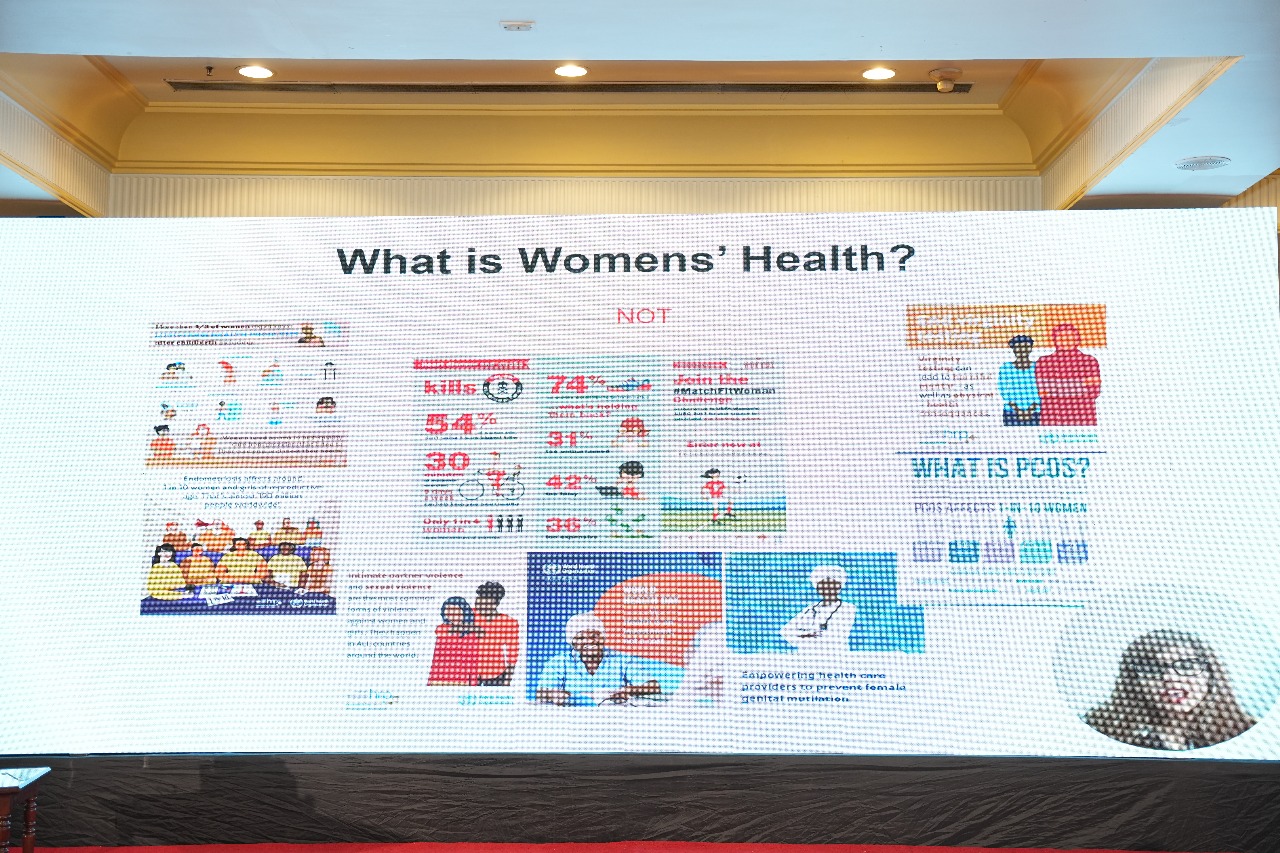
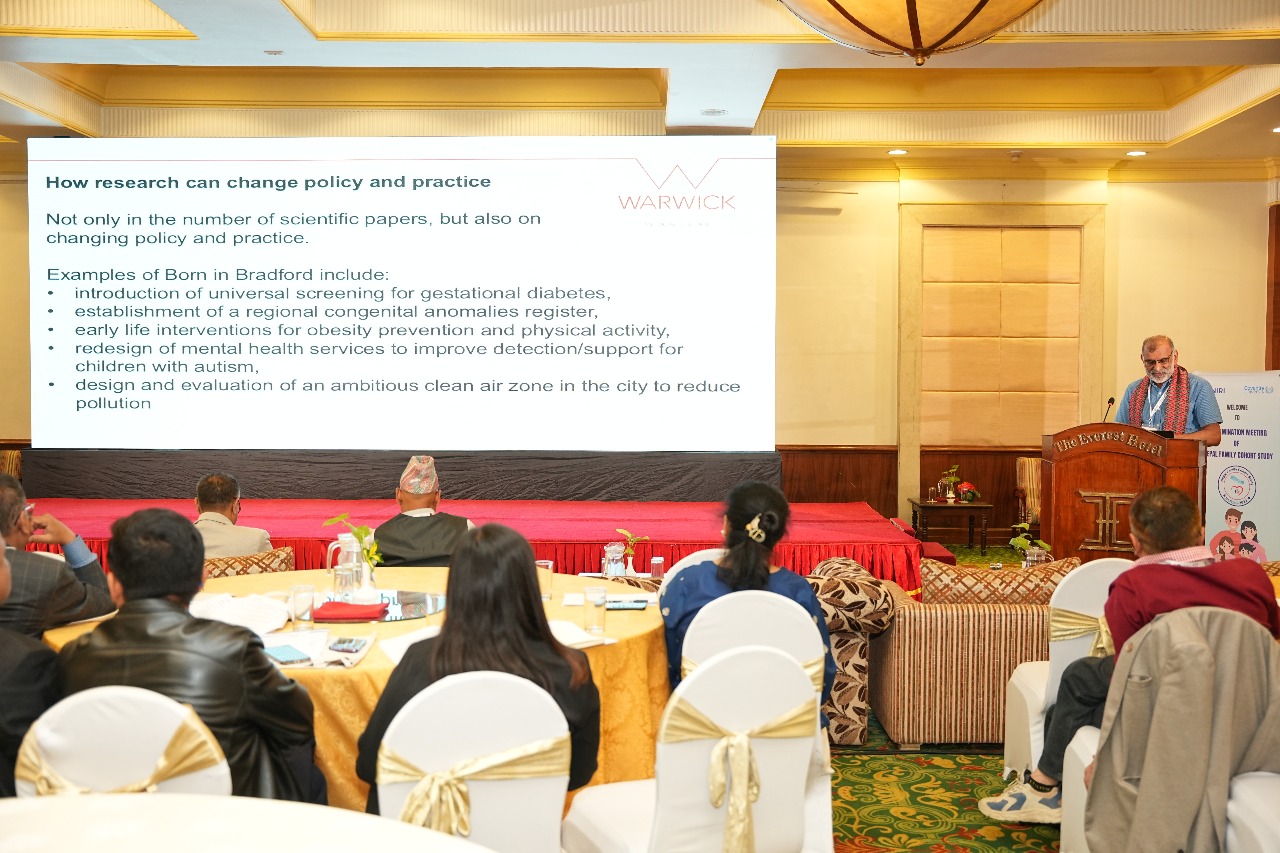
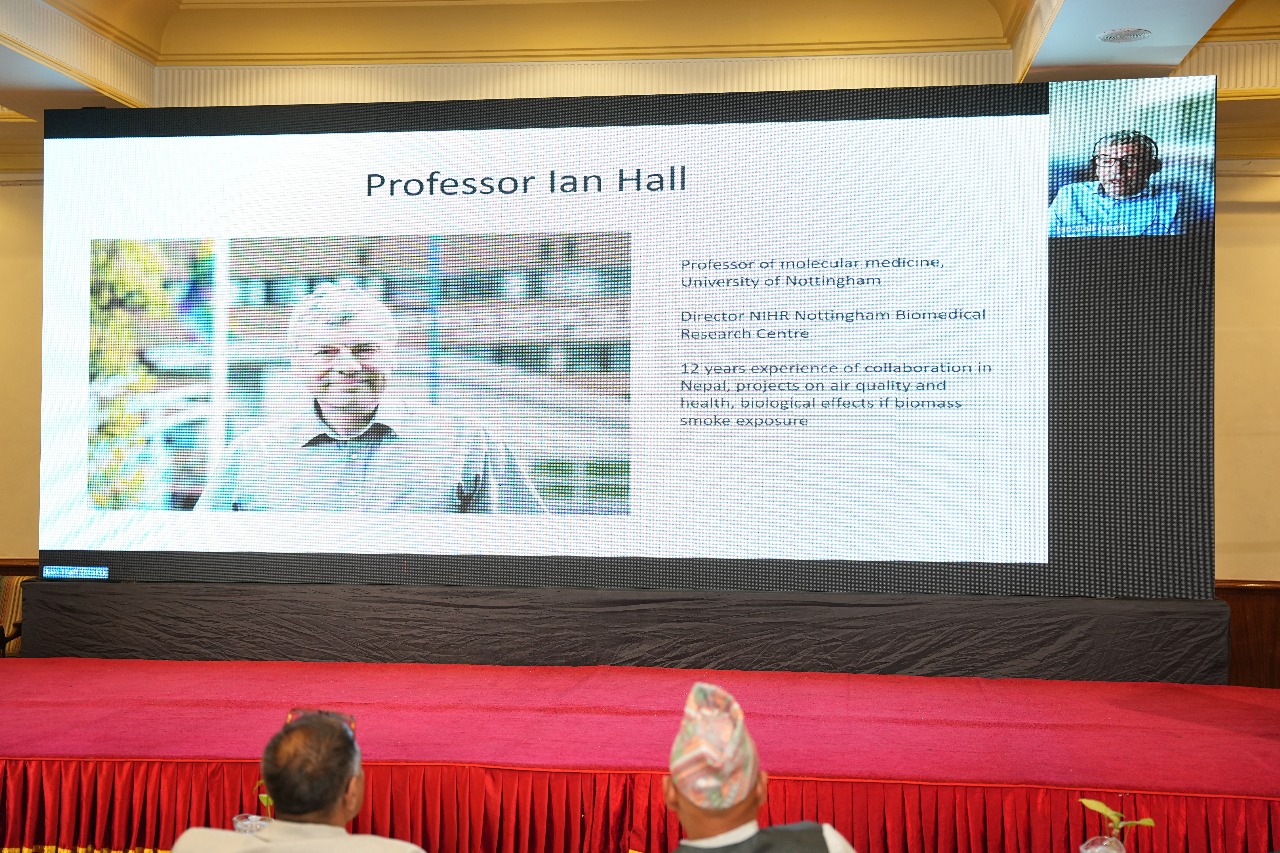
A particularly insightful presentation was delivered by Prof. Sudhir K. Tyagi (Indian Institute of Technology Delhi), who spoke on air pollution, respiratory health, and the urgent need for clean and sustainable energy solutions in South Asia.
With over 25 years of experience in research and innovation, Prof. Tyagi presented actionable strategies for turning scientific insights into real-world clean energy solutions. His contributions on renewable energy systems and household air pollution mitigation offered a comprehensive, cross-disciplinary framework for advancing respiratory health in Nepal.
A local government representative from Lumbini then presented insights from the ground, emphasizing the practical challenges and successes of implementing NeFCoS at the community level.
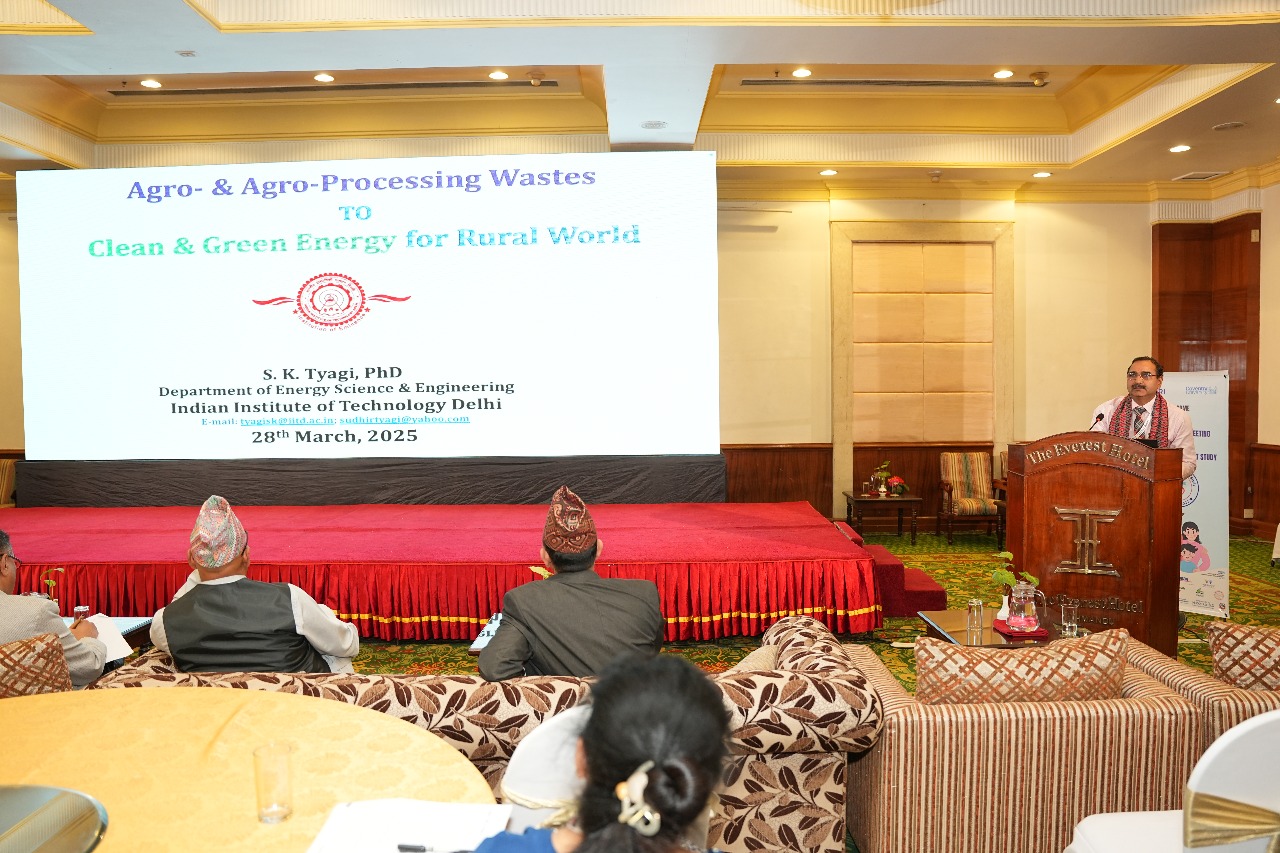
The speaker emphasized the significance of fostering public trust, strengthening local capabilities, and promoting inclusive governance to ensure the success of large-scale health research. The presentation showcased how NeFCoS effectively collaborated with local governments to encourage active involvement, thereby enhancing the study’s sustainability and its relevance to the community.
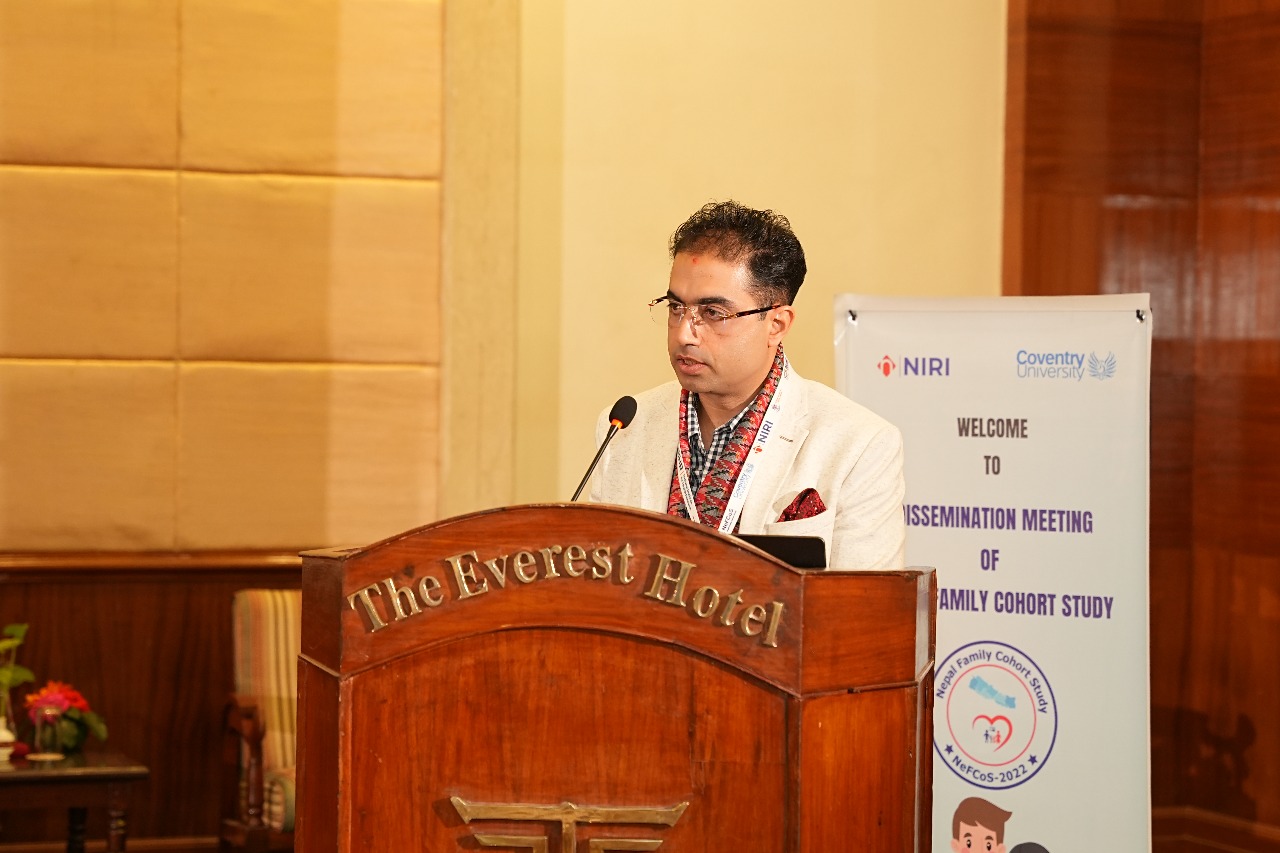
Dr. Pramod Joshi, Executive Chief of NHRC, emphasized the importance of ethical research and the value of longitudinal studies like NeFCoS in understanding disease trends. He reaffirmed NHRC’s support for translating research into policy while maintaining high ethical standards.
Prof. Dr. Sujan Babu Marahatta highlighted the need to integrate research into Nepal’s medical education, promoting bench-to-bedside approaches. He emphasized training clinicians as both care providers and evidence generators, with MEC supporting research-driven healthcare leadership.
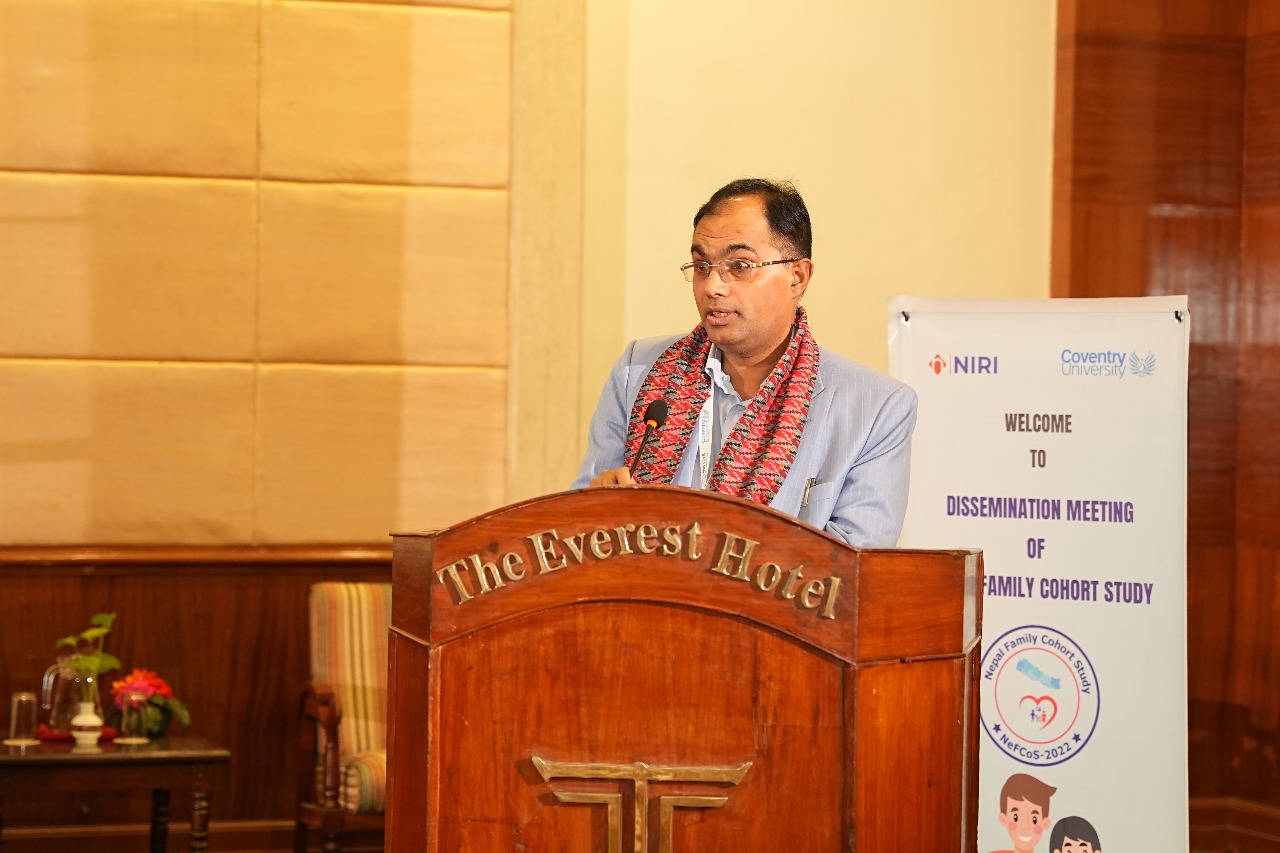
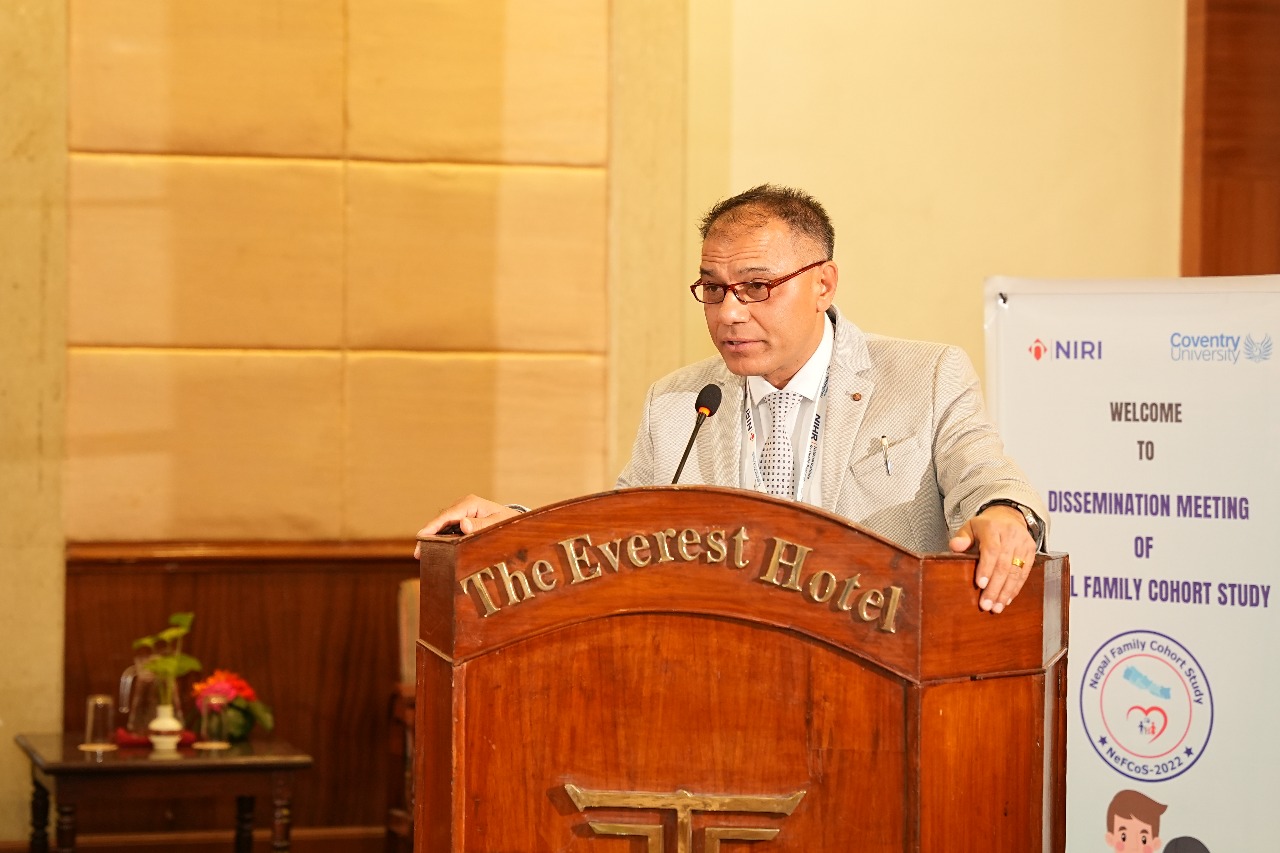
Dr. Pradip Gyanwali emphasized Nepal’s expanding role in clinical research and NeFCoS’s contribution to that growth. He highlighted the importance of national initiatives in building a sustainable, research-driven healthcare system and expressed strong support for continued collaboration.
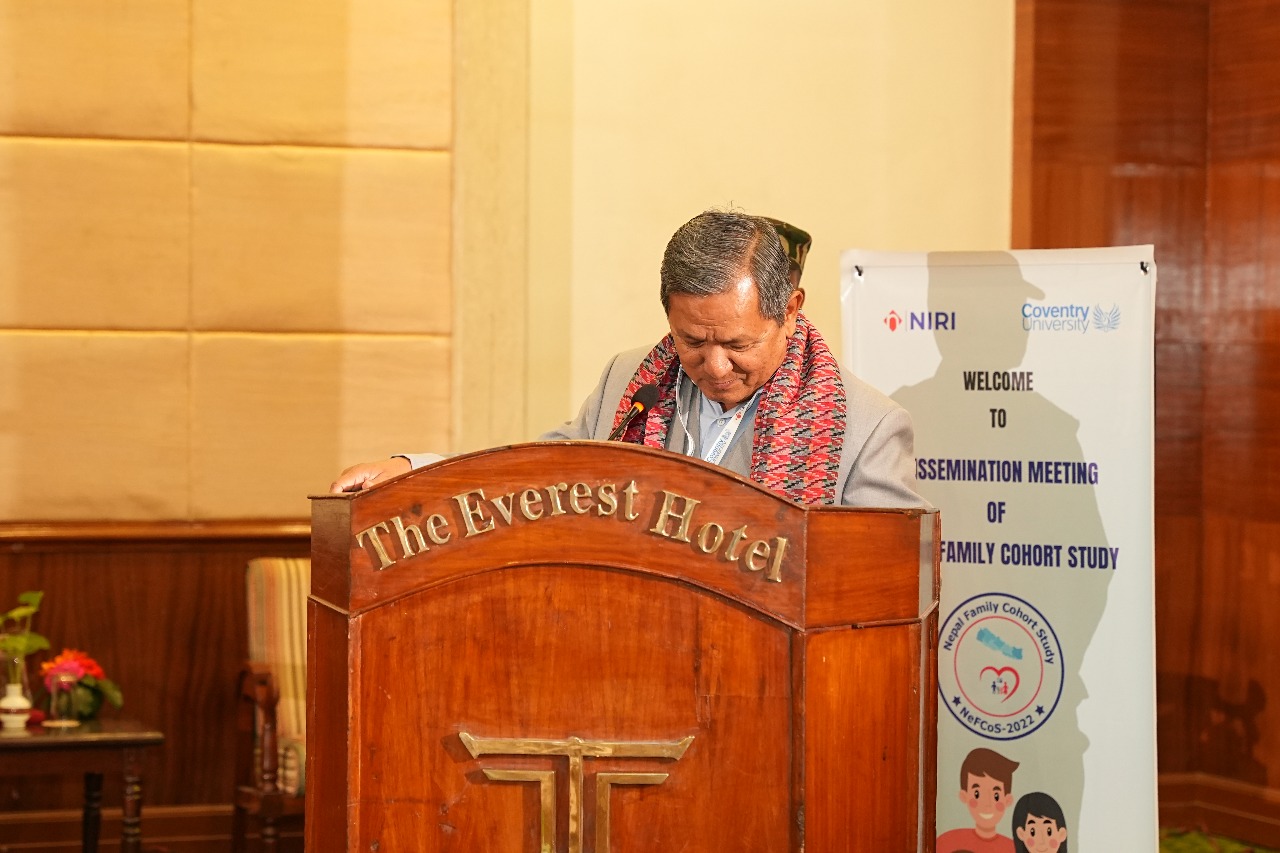
Honorable Minister Prithvi Subba Gurung, Minister for Communication and Information Technology, emphasized the vital link between research, technology, and development, advocating for evidence-informed governance and better coordination across government. He highlighted the need for digital platforms to connect stakeholders and called for resource-efficient, people-centered solutions to drive Nepal’s development.
Together, these perspectives affirmed a unified vision: Nepal’s path to a healthier and more equitable future depends on embracing data-driven decision-making, fostering ethical and inclusive research, and strengthening institutions that work collaboratively for the greater good. The program concluded with final remarks by Prof. Dr. Bhagawan Koirala, who reaffirmed the importance of aligning research with public health priorities.

On behalf of the Nepal Family Cohort Study (NeFCoS), we extend our heartfelt thanks to all who participated in and supported our recent dissemination event in Kathmandu. Your presence, insights, and encouragement reaffirmed the power of collaboration in driving meaningful, evidence-based change.
From government leaders and academic partners to health professionals and community representatives, each voice contributed to a shared vision. We are deeply grateful to our study participants, national and international collaborators, and supporters who continue to make NeFCoS one of South Asia’s most ambitious health research efforts. Together, we are laying the foundation for lasting impact—across communities, generations, and borders.
Coventry University, Richard Crossman Building
Priory Street, CV1 5FB, Coventry
Office: +44 7949 393386
[email protected]
08 am – 06 pm Sunday closed
Leave a Reply